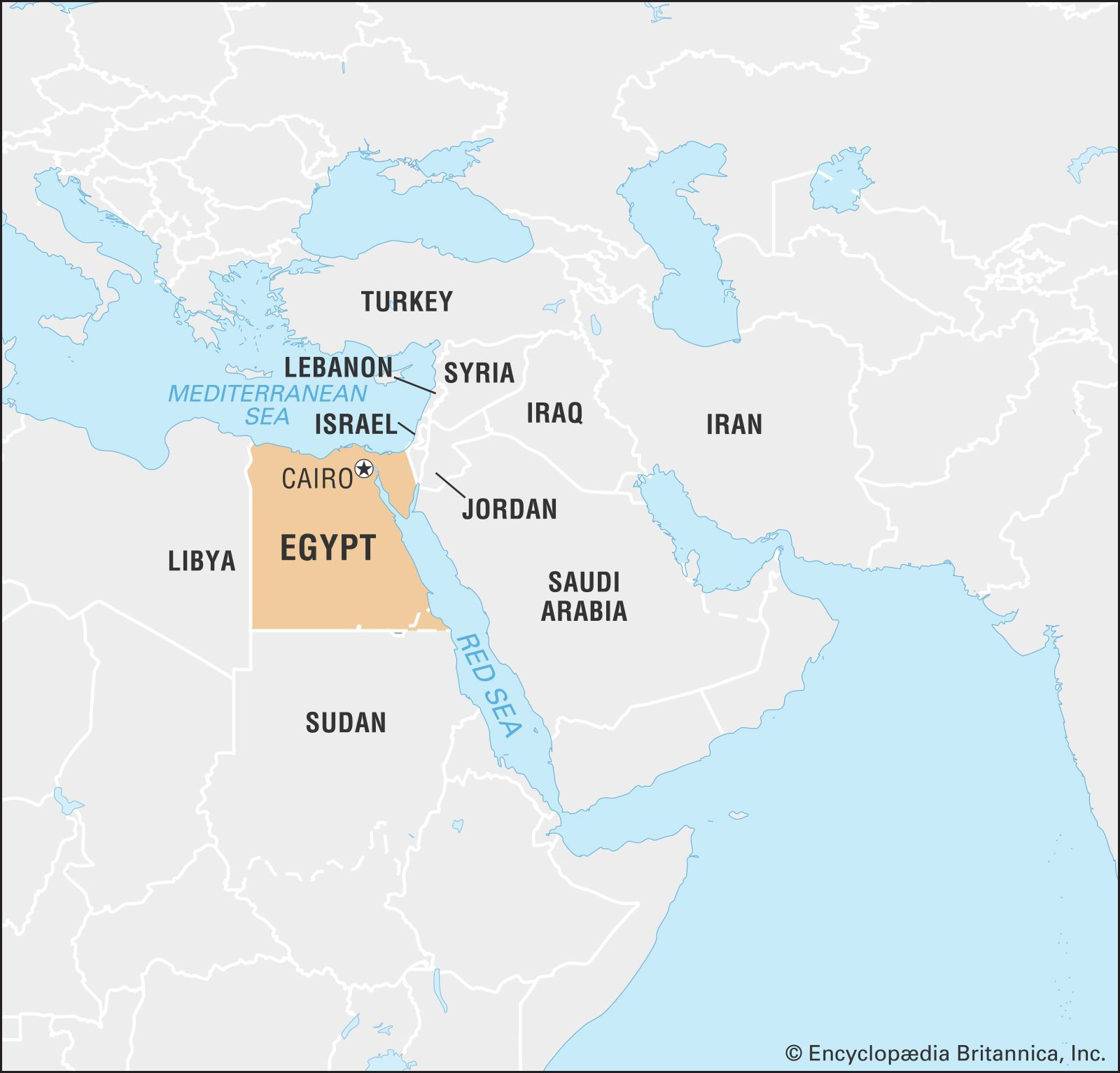Egypt, a nation steeped in history and brimming with cultural significance, is located in the northeastern corner of Africa. This transcontinental country, while predominantly in Africa, also has a foothold in Asia via the Sinai Peninsula. Its strategic position has been pivotal throughout history, connecting the Mediterranean world with the African continent and the Middle East. Understanding where Egypt is geographically is the first step to appreciating its profound impact on civilization and its enduring allure for travelers and historians alike.
 Giza, Egypt: Iconic pyramids against a clear sky
Giza, Egypt: Iconic pyramids against a clear sky
Egypt’s Geographical Location and Key Features
Egypt’s heartland is defined by the fertile Nile River valley and its expansive delta. This lifeline flows northward through the country, providing sustenance and shaping the landscape. To the east, Egypt is bordered by the Red Sea, offering crucial access to maritime trade routes. Its neighbors include Libya to the west, Sudan to the south, and Israel and the Gaza Strip to the northeast. This location places Egypt at a crucial crossroads, bridging diverse regions and cultures.
The significance of Egypt’s location is further amplified by the Suez Canal, a man-made waterway that connects the Mediterranean Sea to the Red Sea. Opened in 1869, the Suez Canal revolutionized global trade by providing a direct sea route between Europe and Asia, bypassing the long journey around Africa. This strategic waterway has been a focal point of international interest and, at times, contention, underscoring Egypt’s geopolitical importance.
 Egypt's location in northeastern Africa highlighted on world map
Egypt's location in northeastern Africa highlighted on world map
A Historical Powerhouse at the Crossroads of Civilizations
Beyond its geographical coordinates, Egypt’s “where” is also defined by its historical and cultural context. For millennia, Egypt has been a cradle of civilization. Ancient Egypt, flourishing along the Nile, was one of the earliest and most advanced societies in the world. Its pharaohs ruled powerful dynasties, leaving behind iconic monuments like the pyramids of Giza and the temples of Luxor, testaments to their sophisticated understanding of mathematics, engineering, and governance.
Egypt’s strategic location made it a target for conquest and a hub for cultural exchange. Following periods of native rule, Egypt was conquered by Alexander the Great, becoming a vital part of the Hellenistic world. Alexandria, founded by Alexander, became a beacon of learning and culture. Later, Egypt fell under Roman rule, then became part of the Byzantine Empire, further layering its historical tapestry.
The 7th century saw a transformative shift with the Arab Muslim conquest. Egypt gradually adopted Arab culture and the Arabic language, becoming integrated into the expanding Islamic world. Despite periods of rule by various foreign powers, Egypt maintained its cultural prominence, evolving into a major intellectual and cultural center within the Arab and Islamic world, particularly after the decline of Baghdad in the 13th century.
Modern Egypt: A Nation of Influence
In more recent history, Egypt’s “where” has continued to shape its trajectory. The French occupation under Napoleon in the late 18th century marked the beginning of increased European influence. The subsequent construction of the Suez Canal solidified Egypt’s strategic importance in the eyes of European powers, particularly Britain, which exerted significant control over Egypt until the mid-20th century.
The 20th century witnessed Egypt’s rise as a leader in the Arab world. Following a 1952 revolution, Egypt embraced Pan-Arab nationalism and played a central role in regional politics. Despite conflicts with Israel, Egypt became the first Arab state to make peace, reshaping the geopolitical landscape of the Middle East. Modern Egypt continues to be a significant player in the region, navigating its rich heritage with the complexities of contemporary global politics.
 Egyptian flag waving proudly, a symbol of national identity
Egyptian flag waving proudly, a symbol of national identity
Conclusion: Egypt’s Enduring Significance
So, Where Is Egypt? It is geographically situated in northeastern Africa, a land bridge to Asia, defined by the Nile and the Suez Canal. But more than just coordinates, Egypt is located at the heart of history, culture, and civilization. Its location has been instrumental in shaping its identity, its influence, and its enduring legacy as a cornerstone of both the ancient and modern world. From the pyramids to the Suez Canal, Egypt’s “where” is inextricably linked to its “why” – why it matters, why it captivates, and why it remains a vital nation on the world stage.
[

